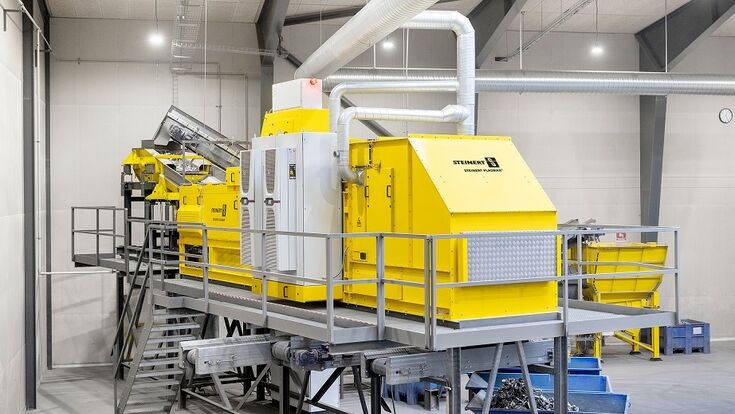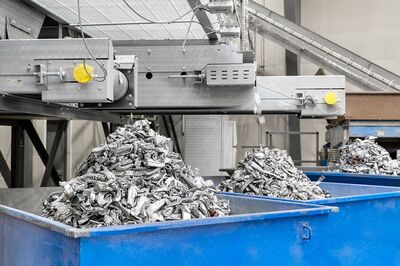Metal Recycling : A new benchmark for sorting aluminium alloys

The new STEINERT PLASMAX® | LIBS enables recycling firms to take aluminium recycling to the next level and to specifically produce high-grade alloy classes ready for the furnace.
- © STEINERTAsk leading figures and visionaries in the recycling industry where they see metal recycling heading, and the answer is often the same: sorting aluminium alloys. STEINERT responded to this trend back in 2016 with the STEINERT LSS and is now launching its second LIBS sorting system.
Packed with innovations, the STEINERT PLASMAX | LIBS is the solution for high-purity separation of aluminium alloys and can handle large volumes. With over 95% purity, the new LIBS system achieves high quality levels, allowing the sorted product to be returned directly to the production process.
What is LIBS technology?
LIBS stands for “Laser-Induced-Breakdown-Spectroscopy”; a technology used to analyse materials down to their elemental composition. A high-energy laser beam is directed at the aluminium, evaporates material and produces a plasma heated to several thousand degrees, which then disintegrates into light emissions. Spectral analysis can be used to determine its elemental composition and aluminium can be separated with very high levels of precision.
Volume sorting with maximum precision
With a processing capacity of 3 - 6 t/h and three simultaneous material discharges, the STEINERT PLASMAX | LIBS enables the most efficient processing of high-grade aluminium scrap, meeting all current industry standards.
The new sorting system brings together several technological innovations and combines them on the proven STEINERT KSS platform - a symbiosis that promises maximum quality and reliability. The compact design also makes it very easy to integrate the sorting system into existing systems.
Karl Hoffmann, Global Sales Director Metal Recycling at STEINERT, summarises the driving force behind the development: "Precise sorting of aluminium with the STEINERT PLASMAX I LIBS delivers quality levels that provide an excellent basis for the increasing demand for recycled aluminium. With the need to decarbonise the automotive industry and its supply chains, increased use of high quality recycled materials is essential. I am delighted that with the STEINERT PLASMAX I LIBS we are able to present a technology that we have developed in-house and that once again sets new standards in the aluminium recycling industry.

A new approach to sorting aluminium
Processing begins as soon as the material is placed on the new infeed system. A specially designed multi-stage feeder ensures perfect coverage of the conveyor belt.
This is followed by 3D detection and ultra-precise in-flight detection, i.e. detection immediately after the material leaves the belt. Using kinetic energy, the material flies through the laser unit in a stable parabola. The novel multi-spot analysis uses several laser measuring points simultaneously, hitting the material exactly at right angles to ensure optimum detection.
The plasma created when the laser pulse hits the aluminium is analysed by AI and separated into one of three discharges by a pulse of compressed air.
Presentation in Las Vegas and Munich
Customers who have had the opportunity to test the STEINERT PLASMAX | LIBS are impressed with its performance. They are able to achieve high throughput rates and produce high quality fractions, enabling them to develop new revenue streams. The sorting system offers both operational flexibility and an important step towards a sustainable future through the efficient recycling of aluminium alloys.
The presentation of the new STEINERT PLASMAX | LIBS in April at ISRI in Las Vegas and in May at IFAT in Munich promises an exciting insight into this and other sorting solutions for the future of metal recycling. We invite anyone interested in this system to contact our recycling specialists to learn more about the sorting system of the future.
